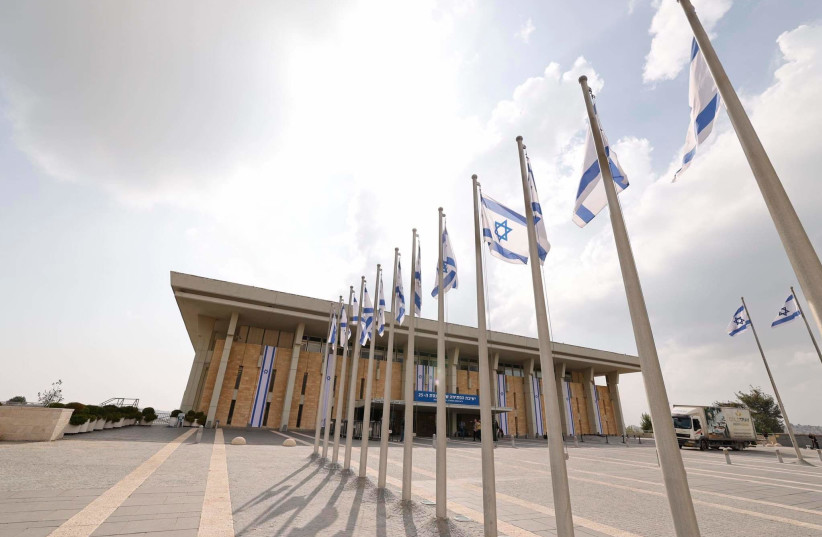The Knesset Constitution Committee held a heated debate on Monday over a “softened” version of a bill proposal by Likud MK Hanoch Milvitsky that would alter the budget of the Israel Bar Association (IBA) by removing the authority to set the height of membership fees from the association itself and giving it to government-appointed representatives.
Milvitsky, committee chairman MK Simcha Rothman, and other representatives of the coalition have accused the IBA of using its budget for purposes that are not part of the IBA’s statutory roles, and have argued that the IBA was taking advantage of its status for political purposes. However, members of the IBA and the opposition argued that the bill was an attempt to exact revenge on the IBA by harming its independent ability to set its budget.
The revenge, according to the bill’s opponents, is due to the IBA’s two representatives on the Judicial Selection Committee opposing Justice Minister Yariv Levin’s attempt to block the appointment of High Court judge Yitzhak Amit as permanent Chief Justice.
Controversial bill
The bill’s initial version said that the justice minister would have the power to set the membership fees. According to the “softened” version, the IBA would set the membership fees, but they would need to be approved by an accountant from the justice ministry.
In addition, the “softened” version includes a clause whereby the IBA may only use the budget that comes from the membership fees for specific purposes that are necessary to carry out the IBA’s basic functions.

Representatives of the IBA, led by its chairman, Adv. Amit Becher, argued that the “softened” version would still harm the IBA, since many of actions that were not considered “necessary” were still imperative to maintain high professional levels of lawyers – including professional conferences, IBA committees that formulate opinions on legislative initiatives, and other functions.
The debate became heated at times, as family members of hostages being held in Gaza, alongside members of the IBA and MKs from the opposition, criticized Rothman for insisting on debating the controversial bill for what they claimed were political purposes, and not focusing on the hostages and other more important matters.
The makeup of the Judicial Selection Committee has been a major bone of contention between the government and the opposition, and judicial system, and one of the central bills in the judicial reforms was to alter its makeup such that the government could have indirect control over judicial appointments. Another bone of contention is the mechanism to appoint the Chief Justice.
Traditionally, the position is filled by the longest-serving member of the bench, who is currently Amit. Levin, however, prefers the conservative judge Yosef Elron, and has argued that the "seniority" method is not statutory and should not always apply.
The chief justice vote requires a regular majority within the nine-member selection. The committee includes three judges and two members of the IBA, and, along with the opposition representative MK Karine Elharrar, is expected to appoint Amit. However, an IBA vote alongside the coalition's three representatives would give Levin a majority.
Levin has, therefore, refrained from convening the committee to appoint the next permanent chief justice or to fill the three current vacancies on the bench. The High Court ruled in September that Levin did not have the authority to avoid electing a chief justice, and gave him 14 days to announce the candidates and an additional 45 days to convene the committee. A meeting is scheduled for November 28.
Levin announced on November 5 that the committee would convene on November 28, but it is not clear if a vote to appoint the chief justice will be held.
